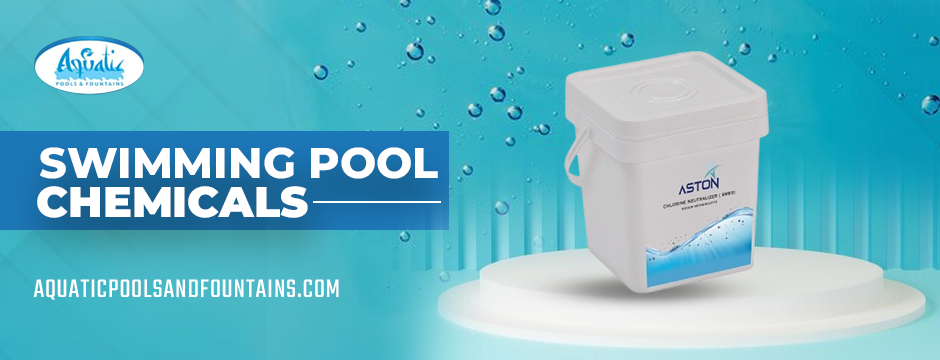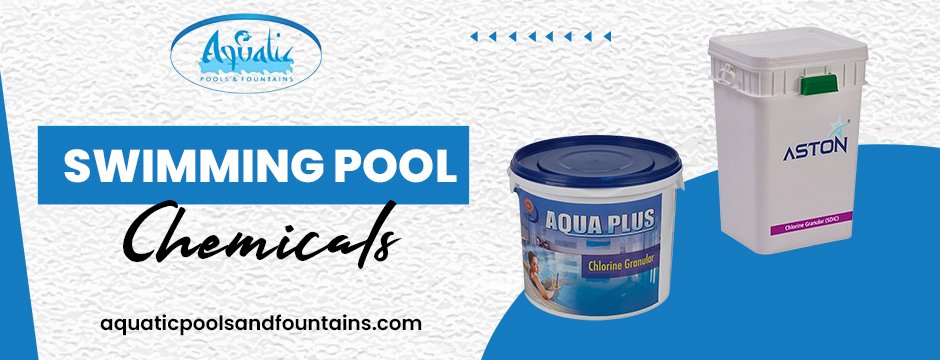The Dos and Don’ts of Handling Swimming Pool Chemicals: Safety Tips for Pool Owners
The swimming pool is all about fun and enjoyment. But in between these activities, we always forget about its maintenance to keep it safe and secure. In the case of keeping the pool clean, there are some proper usages of chemicals we should opt for. But these chemicals can be absolutely dangerous, if we do not, properly use them. Here, in this blog, we will talk about the dos and don’ts of handling swimming pool chemicals with several significant points.

The Dos of Handling Swimming Pool Chemicals
Do Read Labels Carefully
Always read the labels on pool chemical containers. The labels provide important information on how to use and store the chemicals. Pay attention to the recommended dosages, safety precautions, and first aid instructions.
Do Wear Protective Gear
When handling pool chemicals, always wear appropriate protective gear. This includes gloves, goggles, and sometimes a mask. These items protect your skin, eyes, and lungs from harmful chemicals.
Do Store Chemicals Properly
Store pool chemicals in a cool, dry place away from direct sunlight. Make sure they are kept out of reach of children and pets. Use original containers with labels intact to avoid confusion and ensure safety.
Do Use Clean, Dry Equipment
Use clean, dry equipment for measuring and adding chemicals to your pool. Moisture can cause some chemicals to react unexpectedly, leading to dangerous situations.
Do Add Chemicals to Water
When mixing chemicals, always add chemicals to water, not water to chemicals. This helps prevent splashing and reduces the risk of a dangerous reaction.
Do Follow a Routine
Establish a routine for testing your pool’s water and adding necessary chemicals. Consistent maintenance keeps your pool safe and helps prevent larger problems from developing.
Do Ventilate the Area
If you are handling chemicals in an enclosed space, make sure the area is well-ventilated. Fumes from some pool chemicals can be harmful if inhaled in large quantities.
The Don’ts of Handling Swimming Pool Chemicals
Don’t Mix Chemicals
Never mix different pool chemicals. Mixing chemicals can cause dangerous reactions, including explosions, fires, or the release of toxic gasses. Always handle chemicals separately and according to their instructions.
Don’t Store Chemicals Together
Keep different types of pool chemicals stored separately. Some chemicals can react with each other even when stored, leading to dangerous situations. Use separate, clearly labeled storage containers if necessary.
Don’t Add Chemicals Directly to the Pool
Avoid adding chemicals directly to the pool without diluting them first, unless the instructions specifically say to do so. Pour chemicals into a bucket of water first to ensure they dissolve properly and distribute evenly in the pool.
Don’t Handle Chemicals with Bare Hands
Never handle swimming pool chemicals with bare hands. Many pool chemicals can cause skin irritation or burns. Always wear gloves to protect your skin.
Don’t Use Expired Chemicals
Check the expiration dates on your pool chemicals. Using expired chemicals can be ineffective or even dangerous. Dispose of old chemicals according to local regulations and replace them with fresh supplies.
Don’t Eat, Drink, or Smoke Around Chemicals
Avoid eating, drinking, or smoking while handling pool chemicals. You could accidentally ingest chemicals or cause a fire. Keep food, drinks, and cigarettes away from the area where you store and handle chemicals.
Don’t Ignore Spills
If you spill any chemicals, clean them up immediately. Use appropriate materials and follow the cleanup instructions on the label. Ignoring spills can lead to accidents or damage to surfaces.
Additional Safety Tips
Keep Emergency Numbers Handy
Have emergency contact numbers readily available, including poison control and your local fire department. In case of an accident, quick access to these numbers can be crucial.
Educate Family Members
Make sure everyone in your household knows the basics of pool chemical safety. Educate them on the importance of not touching chemicals and what to do in case of an emergency.
Regularly Test Pool Water
Testing your pool water regularly helps you maintain the right chemical balance. Use test strips or kits to check for pH, chlorine levels, and other important factors. Adjust the chemical levels as needed to keep your pool safe and clean.
Follow Manufacturer Instructions
Always follow the manufacturer’s instructions for all pool chemicals. These guidelines are designed to ensure safe and effective use. If you have any questions or concerns, contact the manufacturer for more information.
Be Aware of Weather Conditions
Weather can affect how chemicals work in your pool. For example, heavy rain can dilute pool chemicals, while hot weather can cause chlorine to dissipate faster. Adjust your chemical treatments based on weather conditions to keep your pool in top condition.
Conclusion
Maintaining a swimming pool requires careful handling of chemicals to ensure the safety and enjoyment of everyone using it. By following the dos and don’ts outlined above, you can keep your pool clean, safe, and well-maintained. Remember, safety comes first: always read labels, wear protective gear, store chemicals properly, and never mix different chemicals. By implementing these best practices, you can avoid accidents and ensure that your pool remains a fun and safe place for family and friends. For top-quality swimming pool chemicals and expert advice, trust Aquatic Pools and Fountains L.L.C. They provide a wide range of products and services to meet all your pool maintenance needs, ensuring your pool stays in perfect condition year-round.

